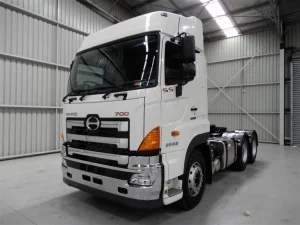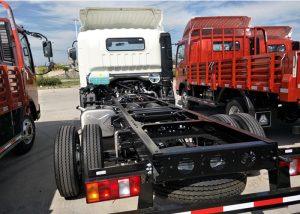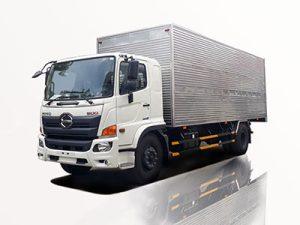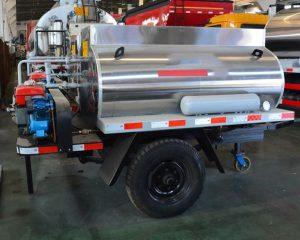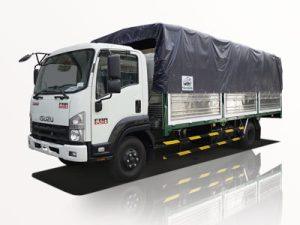Monday to Saturday - 8:00 -17:30
How Many Gallons in a Fuel Truck: A Comprehensive Guide
When it comes to fuel transportation, understanding the capacity of fuel trucks is essential for businesses, logistics companies, and individuals who depend on fuel deliveries. This article provides an in-depth look at how many gallons are typically found in fuel trucks, delving into various capacities, types of fuel trucks, and their practical applications. We will also provide practical examples, tips, and answer some frequently asked questions.
Understanding Fuel Truck Capacities
Fuel trucks come in various sizes and capacities. The primary factor that determines the number of gallons in a fuel truck is its design and purpose. Fuel trucks are categorized based on their load capacities, which can vary significantly.
Common Fuel Truck Capacities
| Type of Fuel Truck | Average Capacity (Gallons) |
|---|---|
| Small Tanker | 1,000 – 3,500 |
| Medium Tanker | 3,500 – 5,000 |
| Large Tanker | 5,000 – 10,000 |
| Super Tanker | 10,000 – 12,000+ |
Factors Influencing Fuel Truck Capacity
Several factors can influence how many gallons a fuel truck can carry:
- Truck Size: The overall design and dimensions of the truck play a significant role in its fuel capacity.
- Regulatory Standards: Different regions may have regulations limiting the maximum size of fuel tanks.
- Type of Fuel: Different fuels (e.g., gasoline, diesel, or jet fuel) may impact tank design, affecting total capacity.
- Load Weight: The maximum weight that a truck can carry, including fuel weight, also dictates its overall capacity.
Types of Fuel Trucks
Fuel trucks differ in design depending on their intended use and the kinds of fuel they transport. Below are some common types:
1. Tanker Trucks
Tanker trucks are specifically designed for transporting liquids, including fuel. Their large tanks are cylindrical to minimize structural weaknesses and allow for optimal load distribution. Most tankers fall into the medium to super tanker category, holding anywhere from 3,500 to 12,000 gallons.
2. Straight Trucks
Straight trucks feature a single continuous frame and are more maneuverable than tanker trucks. These trucks generally carry lower capacities, typically between 1,000 and 5,000 gallons, making them suitable for urban deliveries.
3. Specialized Fuel Trucks
Some fuel trucks are customized for specific tasks, such as delivering fuel to construction sites or supplying agricultural machinery. Their capacities can vary widely based on their design.
Real-World Examples of Fuel Truck Capacities
To provide a clearer perspective on the capacities of fuel trucks, let’s look at some real-world examples:
Example 1: Local Fuel Distribution
A small fuel company uses straight trucks with a capacity of 2,500 gallons. They deliver to local gas stations and are capable of making several trips per day.
Example 2: Large-Scale Transportation
A national fuel distributor utilizes large tankers that can hold up to 10,000 gallons. These trucks are often seen on highways, transporting fuel between refineries and distribution centers.
Example 3: Agricultural Fuel Delivery
An agricultural business caters to farmers by using specialized fuel trucks designed for off-road deliveries, averaging around 5,000 gallons in capacity. These trucks supply fuel directly to farms and equipment to minimize downtime.
Choosing the Right Fuel Truck
When selecting a fuel truck, consider the following factors to ensure you choose the best option for your needs:
1. Determine Fuel Demand
Understanding how much fuel you require regularly will help you decide the necessary capacity. Consider peak demand times and adjust your truck choice accordingly.
2. Evaluate Delivery Locations
Urban environments may require smaller trucks for easier maneuverability, while rural areas often demand larger trucks capable of long-haul deliveries.
3. Regulatory Compliance
Be aware of local and regional regulations regarding fuel transportation, as they can affect the type and capacity of the truck you can operate.
Maintenance Tips for Fuel Trucks
Regular maintenance of fuel trucks ensures they operate efficiently and safely. Here are some practical maintenance tips:
1. Regular Inspections
Conduct regular inspections of the fuel tank, pumps, and hoses to look for signs of wear and leaks. Address any issues immediately to prevent accidents.
2. Monitor Fuel Quality
Check the quality of fuel being transported to avoid contamination, which can cause harm to engines and machinery.
3. Keep Detailed Records
Maintain detailed records of fuel deliveries, maintenance schedules, and inspections to ensure compliance with regulatory standards and improve operational efficiency.
Understanding Fuel Pricing and Economics
The economics of running a fuel truck fleet also play a vital role in the decision-making process. Here are some factors to consider:
1. Fuel Costs
Knowing the cost per gallon of fuel is crucial for budgeting. Calculate your costs based on the truck capacity and frequency of deliveries to optimize expenses.
2. Operating Expenses
Consider associated operating costs, including maintenance, insurance, and labor, while planning your fuel delivery business.
3. Price Fluctuations
Stay informed about market fuel prices and trends, which can help you adjust your pricing strategy and maintain profit margins.
Common Issues Faced in Fuel Transportation
Fuel transportation comes with its challenges. Here are some common issues and how to address them:
1. Spills and Leaks
Spills can lead to hazardous situations. Train drivers on emergency procedures and invest in reliable technology for leak detection.
2. Compliance Failures
Failure to comply with regulations can result in fines. Stay updated on federal, state, and local regulations to ensure adherence.
3. Driver Safety
Ensure driver safety by providing proper training and equipping trucks with safety features to minimize accidents.
Frequently Asked Questions (FAQ)
1. How many gallons can a typical fuel truck carry?
A typical fuel truck can carry anywhere from 1,000 to 12,000 gallons, depending on its size and purpose.
2. What are the different types of fuel trucks?
Common types of fuel trucks include tanker trucks, straight trucks, and specialized fuel delivery trucks.
3. What factors affect a fuel truck’s capacity?
Factors include truck size, regulatory standards, type of fuel transported, and load weight limits.
4. How often should fuel trucks be maintained?
Fuel trucks should be regularly inspected, often quarterly or bi-annually, depending on usage and regulatory requirements.
5. Can smaller businesses use larger fuel trucks?
While larger trucks can be utilized by smaller businesses, they may not be cost-effective and may pose regulatory challenges in urban settings.
6. Are there safety regulations for fuel transportation?
Yes, there are numerous safety regulations on fuel transportation that businesses must comply with at local, state, and federal levels.


